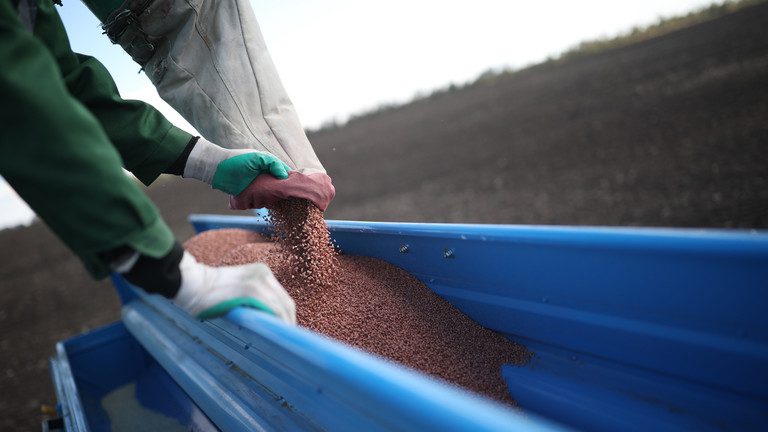Africa
More free wheat will be sent to Africa – Moscow

By the end of this year, supplies will be sent to Somalia, the Central African Republic, Burkina Faso, Zimbabwe, Mali, and Eritrea.
By the end of the year, 200,000 tonnes of wheat will be sent to six additional African nations by Moscow as part of its increased humanitarian grain exports, the Russian Foreign Ministry said on Thursday.
According to Alexey Polishchuk, director of the Russian Foreign Ministry’s Second Commonwealth of Independent States (CIS) Department, the gifts will be sent to Somalia, the Central African Republic (CAR), Burkina Faso, Zimbabwe, Mali, and Eritrea. This information was provided to TASS news agency.
“We fulfil our responsibilities under commercial contracts for the export of fertilisers and agricultural products with care and responsibility, as well as through humanitarian actions,” Polishchuk stated.
He continued by saying that Moscow was coordinating the supplies with the UN World Food Programme and that 34,000 tonnes of fertiliser had already been shipped to Kenya and 20,000 tonnes had already been given to Malawi.
“Three additional supply approvals are nearing completion: 23,000 tonnes to Zimbabwe, 34,000 tonnes to Nigeria, and 55,000 tonnes to Sri Lanka,” the speaker stated.
READ ALSO: Moscow and Kiev respond to the escalation in Israel-Palestine
During the second Russia-Africa conference in July, Zimbabwean President Emmerson Mnangagwa expressed his nation’s interest in Russian fertilisers and grain. He stated that the objective of his government is to guarantee food security and modernise and mechanise Zimbabwe’s economy, and he hoped to work with Moscow on this front.
During the summit, Russian President Vladimir Putin also promised to provide up to 50,000 tonnes of food to six African nations for free.
Dmitry Patrushev, the minister of agriculture, stated earlier in the month that Moscow was “finalising all the documents” so that the free grain deliveries to a few African nations might start “within a month, or a month-and-a-half.” This followed the announcement made in September by Aleksandr Bikantov, Russia’s ambassador to the Central African Republic, that food aid had been sent to the country.
The action comes after Moscow declined to extend the Black Sea Grain Initiative, which sought to alleviate Western sanctions that barred Russian agricultural exports in exchange for allowing Ukraine to transport grain from its ports to nations in Africa, Asia, and the Middle East. Moscow pulled out of the pact in July, claiming that Western nations continued to impede the shipping of fertiliser and food.
According to reports, Russia shipped 11.5 million tonnes of grain to Africa in 2022, despite the fact that the sanctions imposed by the West have affected the delivery of Russian agricultural items to developing nations.
